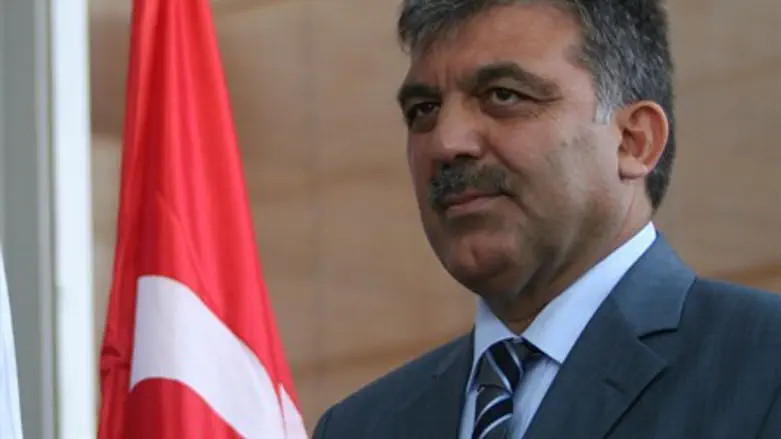
Turkey’s president warned on Sunday that Syria risks becoming "Afghanistan on the shores of the Mediterranean."
Speaking to the British Guardian, President Abdullah Gul said that the Syrian nation is dying as an indifferent world looks on.
Radicalization of ordinary people by Islamist jihadist groups was spreading across Syria and posed a growing risk to its neighbors and the countries of Europe, Gul told the British newspaper.
But the response of the international community – including Turkey's American and British allies – to the security, humanitarian and moral challenges posed by the crisis had been very disappointing, he said.
Gul reiterated his view that the UN Security Council's performance on Syria was a disgrace.
He added that the deaths of more than 100,000 people, mostly civilians, in fighting over the past 32 months could have been avoided. Turkish mediation efforts early on in the war were not supported and were even undermined by western powers, he complained.
Asked about the risk of the war spreading beyond Syria, Gul said that if Turkey were attacked or Turkish territory invaded, his government would respond militarily "in the strongest way possible."
He added, "There is no question about this. In fact we have already stated that we have changed the rules of engagement and we have given authority to Turkish armed forces in that respect … I don't see how much worse it can get, it's already very bad. But let me also say that this is not a bilateral issue between Turkey and Syria. We did not have any conflict with Syria, but when those human rights violations begun to occur and there was massacring of the people of Syria, then it become a matter for mankind, for us all, the international community.”
“It's only by virtue of being a neighboring country that Turkey is so very much involved,” Gul told the Guardian. “Also from the point of view the fact that we are hosting 500,000 Syrians in Turkey. Two hundred thousand of them live in camps and 300,000 in the cities through their own means.”
"We have so far spent $2bn for them. We will continue to do so because this is a humanitarian matter [but] it's very regrettable seeing the indifference on the part of the international community," he added.
Gul said that if the current deterioration in Syria continued unchecked, it would pose an increasingly grave security and counterterrorism challenge for Turkey.
"If the atmosphere remains as it is, then this can lead to more radicalization and some groups in the civil war becoming more extreme, dividing up, not being under control, and spreading across that country,” he warned. “Because under those circumstances, ordinary people could become much more extreme and this is something that poses a danger and threat not just for Turkey – it's an issue for everyone.”
"I don't think anybody would tolerate the presence of something like Afghanistan on the shores of the Mediterranean. For that reason, the international community must have a very solid position with respect to Syria," said Gul.
Turkey and Syria were once close allies, but that changed once the civil war in Syria began. Turkey has lobbied for the ouster of President Bashar Al-Assad and provided shelter for Syrian rebels seeking to overthrow him.
Turkish Prime Minister Recep Tayyip Erdogan has been especially vocal about ousting Assad, branding him “a terrorist who uses state terror”. After a chemical weapons attack near Damascus in August, Erdogan called for military intervention in Syria that would topple Assad’s regime.
The heightened tensions between Turkey and Syria have led to several cross-border incidents, including the explosion of a Syrian mortar in Turkish territory, which killed five civilians last year.
The Turkish army responded by attacking several targets in Syria. Turkey's parliament later gave the government the green light to use military force against Syria if necessary.
The Syrian regime has threatened Turkey with the publication of a list of “targets” that could be hit if Western armies were to intervene in Assad’s battle against rebel armies. Among the targets were strategic positions in Turkey, along with sites in Israel and Cyprus.
In mid-2012 Syria shot down a Turkish plane. Syrian officials later said that the shooting was an accident, and explained that troops may have mistaken the plane for an Israeli one.

